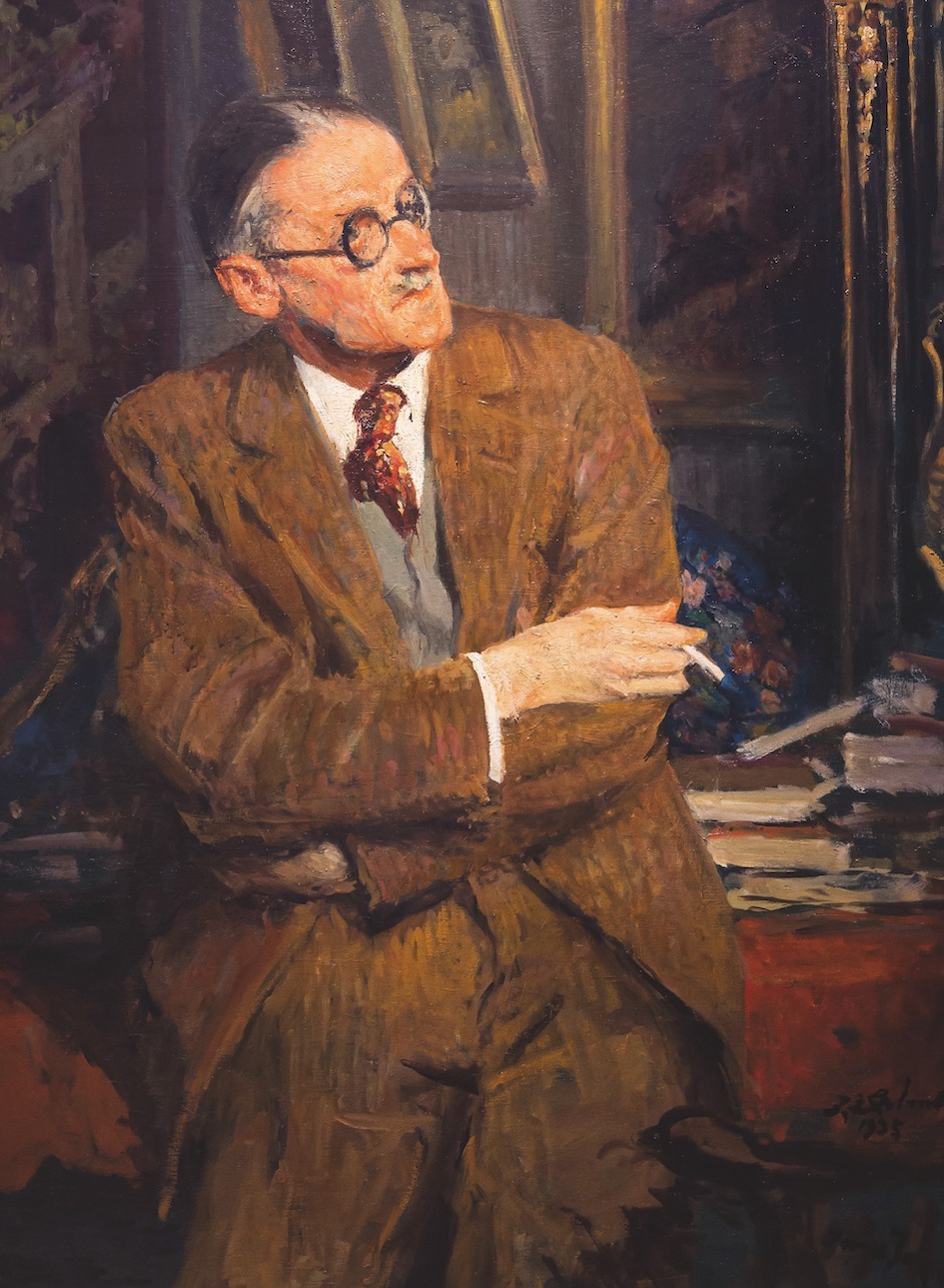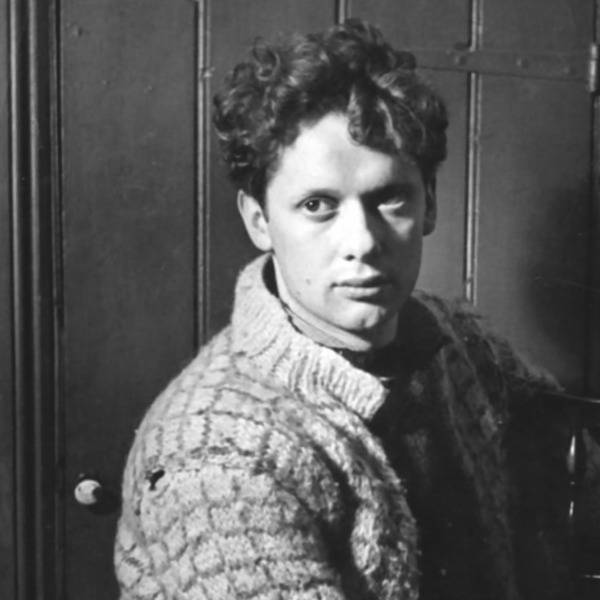
Anyone buying a copy of the first edition of Ulysses, hot off the presses in 1922, would not have had to progress far in the book before coming across its first blasphemy.
“Stately, plump Buck Mulligan came from the stairhead, bearing a bowl of lather on which a mirror and a razor lay crossed. A yellow dressing gown, ungirdled, was sustained gently behind him by the mild morning air. He held the bowl aloft and intoned:
– Introibo ad altare Dei.”
The Latin means “I will go unto the altar of God” and is, or was, said by the priest at the beginning of the former Latin Mass. Mulligan is dressed in a parody of a priest’s vestments except that he is not only in a dressing gown; the dressing gown is undone. Is he actually naked beneath it? “Come up, you fearful Jesuit,” he says to Stephen Dedalus, whom attentive readers of Joyce will recognise as the hero of Portrait of the Artist as a Young Man, plunged, in that book, into terrifying descriptions of the torments of Hell. “Fearful” is about right: fear was what was meant to inspire the people to faith.
Mulligan continues with his parody: “Then, catching sight of Stephen Dedalus, he bent towards him and made rapid crosses in the air, gurgling in his throat and shaking his head.” He then says: “For this, O dearly beloved, is the genuine Christine: body and soul and blood and ouns.” (“Ouns” means wounds, as in God’s wounds.) This is funny, but for a believer not funny at all: a parody of the Mass is, essentially, a Black Mass (a Satanic ritual). We are only three-quarters of the way down the first page and the Catholic reader will be having an attack of the vapours. Later on we will hear Dedalus being taunted by his own conscience for having caused his mother’s death by refusing to pray for her. This mirrors Joyce’s own life, as Richard Ellmann sets out in his classic 1959 biography:
“[His mother’s] fear of death put her in mind of her son’s impiety, and on the days following Easter she tried to persuade him to make his confession and take communion. Joyce, however, was inflexible; he feared, as he had Stephen Dedalus say later, ‘the chemical action’ which would be set up in his soul ‘by a false homage to a symbol behind which are massed twenty centuries of authority and veneration’. His mother wept, and vomited green bile into a basin, but he did not yield.”
It is perhaps hard to imagine the outrage with which Ulysses was greeted when it first became available to the general public a century ago. But this outrage was such that it became, very quickly, unavailable to readers. Before Ulysses had even reached book form, the editors of the American literary magazine the Little Review, which first serialised the text, were prosecuted for obscenity.
Nowadays this story of one day in Dublin in June 1904 – as seen through the eyes of three people – is hailed as one of the greatest novels of the 20th century; even, perhaps, as the greatest novel ever written (this is more or less my position). How could something written with such astonishing craft be considered offensive? So Leopold Bloom is depicted in his privy, or contemplating his genitalia in the bath. Big deal: this is something we do every day. True, the number of people who masturbate to the sight of a young girl leaning backwards to look at the fireworks on Sandymount Strand is, I suspect, very close to zero (unless one is very dedicated to homage). But blasphemy? Perhaps “sacrilege” is the better word. In this episode on Sandymount Strand, from a nearby church comes the smell of “fragrant incense. . . and with it the fragrant names of her who was conceived without the stain of original sin”.
There is still an awful lot of sacrilege in the book. It is almost hag-ridden by religion. But the parodies and mockeries are also part of the fabric of any observant society. In private, people mock what they are told to believe. I think of the Irish comedian Dave Allen’s countless skits on the Catholic Church, or the Italian superstition that it is bad luck to run into nuns or priests in the street. These examples, and countless others, demonstrate a deep ambivalence about religion and its trappings, which can also be seen in Ulysses and its author. Asked, some years after the book’s publication if he had left the Catholic Church, Joyce replied: “That’s for the Church to say.”
But it remains the case that Ulysses is the great humanist tract, the first and greatest example of the counterculture, which achieved this not only by mocking religion but also by concentrating on what it is to be human – to have not only a body but a mind through which thoughts and impressions stream unstoppably. It is humanist in the largest sense of the word, and in case we don’t get the moral message, it is made very clear to us in the episode known to scholars as “Cyclops”, in which the wandering Jew, Bloom, runs into the bigoted loudmouth known as “the citizen” in Barney Kiernan’s pub. To general mockery, Bloom says: “And I belong to a race too. . . that is hated and persecuted. Also now. This very moment. This very instant.”
“Are you talking about the new Jerusalem?” asks the citizen. Bloom replies: “I’m talking about injustice . . . But it’s no use … Force, hatred, history, all that. That’s not life for men and women, insult and hatred. And everybody knows that it’s the very opposite of that that is really life . . . Love. I mean the opposite of hatred.” It is very easy to imagine the scornful tone of the citizen’s answer to this: “A new apostle to the Gentiles. Universal love,” he says, as if such a thing were either impossible or delusional.
Still, I believe that is what Ulysses is trying to achieve, or at least hold up as an example of a better life. After this exchange comes the following passage, which has always fascinated and moved me:
“Love loves to love love. Nurse loves the new chemist. Constable 14A loves Mary Kelly. Gerty MacDowell loves the boy that has the bicycle. M. B. loves a fair gentleman. Li Chi Han lovey up kissy Cha Pu Chow. Jumbo, the elephant, loves Alice, the elephant. Old Mr Verschoyle with the ear trumpet loves old Mrs Verschoyle with the turnedin eye. The man in the brown macintosh loves a lady who is dead. His Majesty the King loves Her Majesty the Queen. Mrs Norman W. Tupper loves officer Taylor. You love a certain person. And this person loves that other person because everybody loves somebody but God loves everybody.”
The notes of the Oxford World’s Classic edition ofUlysses (the best edition) tell us at the back that this is “parody”. I am not so sure. It could indeed easily be read out or imagined in a sarcastic, sing-song whine. But then it could just as easily be considered as an innocent, if naive, exhortation to the universal love that the citizen laughs at.
Whose voice is this? There is no way in the text to tell if it is Bloom’s internal monologue, the citizen’s, someone in his audience’s, or Joyce’s. And that “. . . but God loves everybody”? I like to think that it is not so much the God of the priesthood that is being evoked, but a simple principle, a God “refined out of existence”, to use Joyce’s own term.
That is what Ulysses tells us: to love one another. Whether this has anything to do with any particular God is immaterial. And what could be more humanist than that?
This piece is from the New Humanist summer 2022 edition. Subscribe here.

